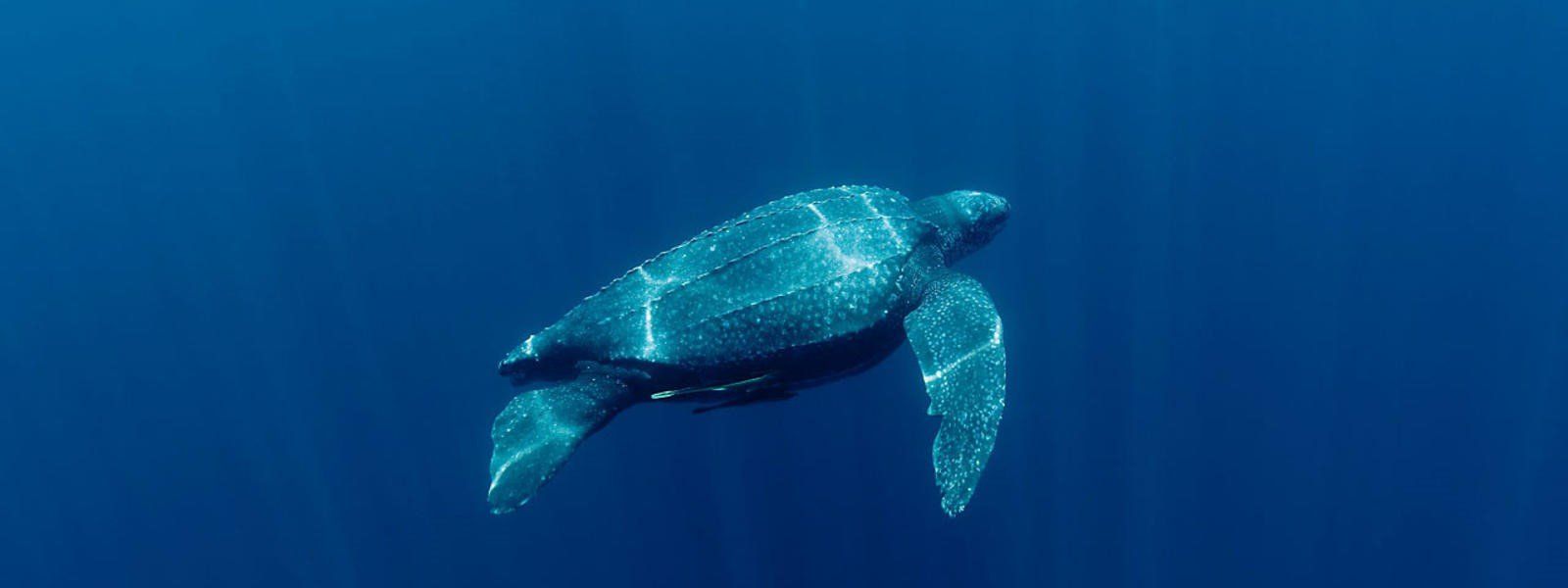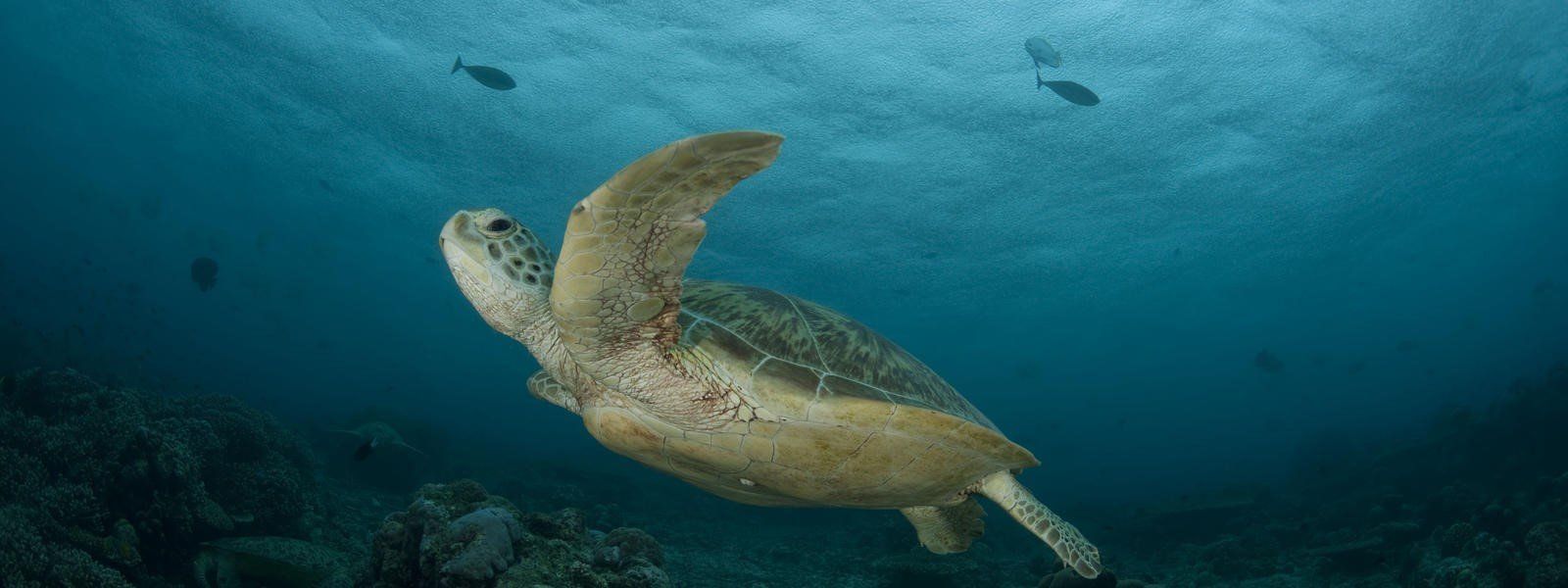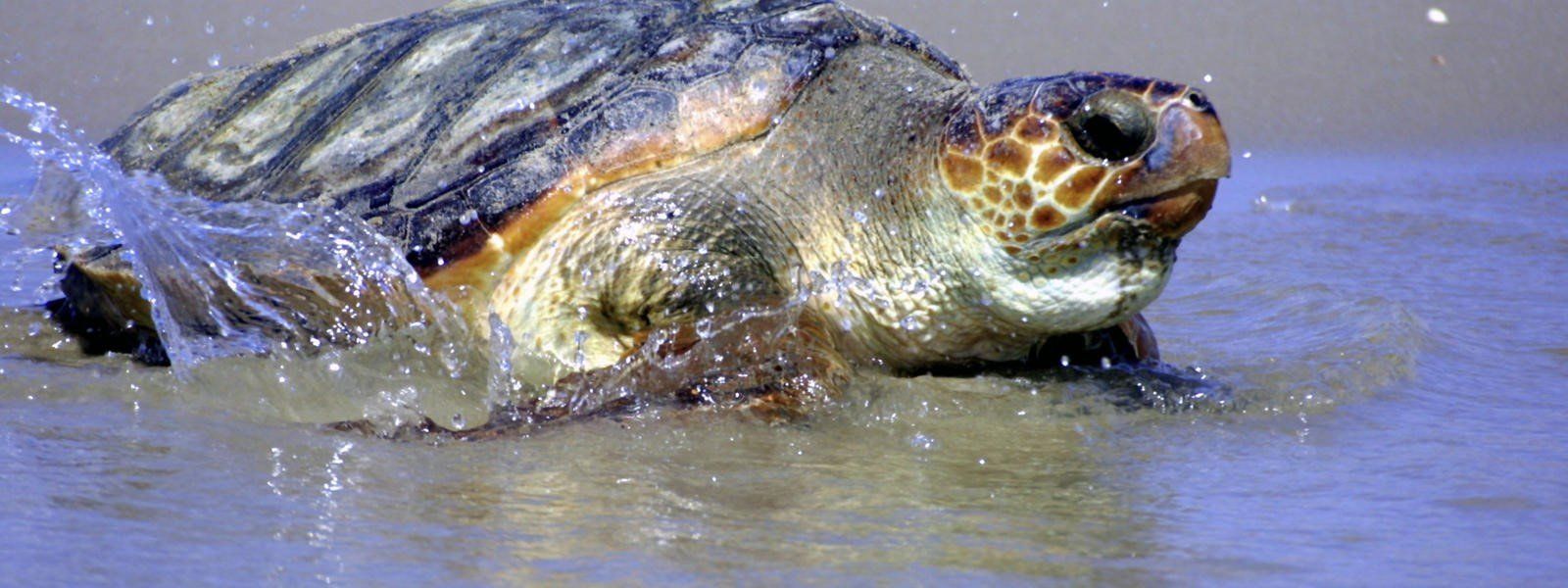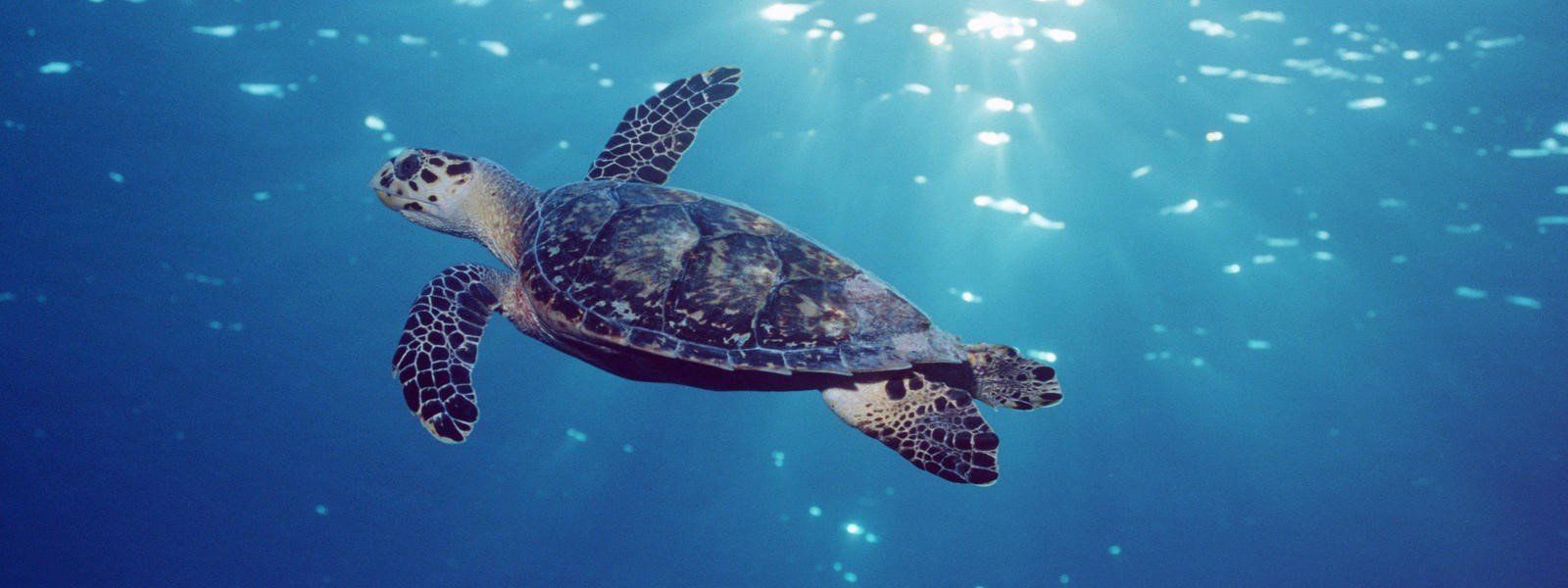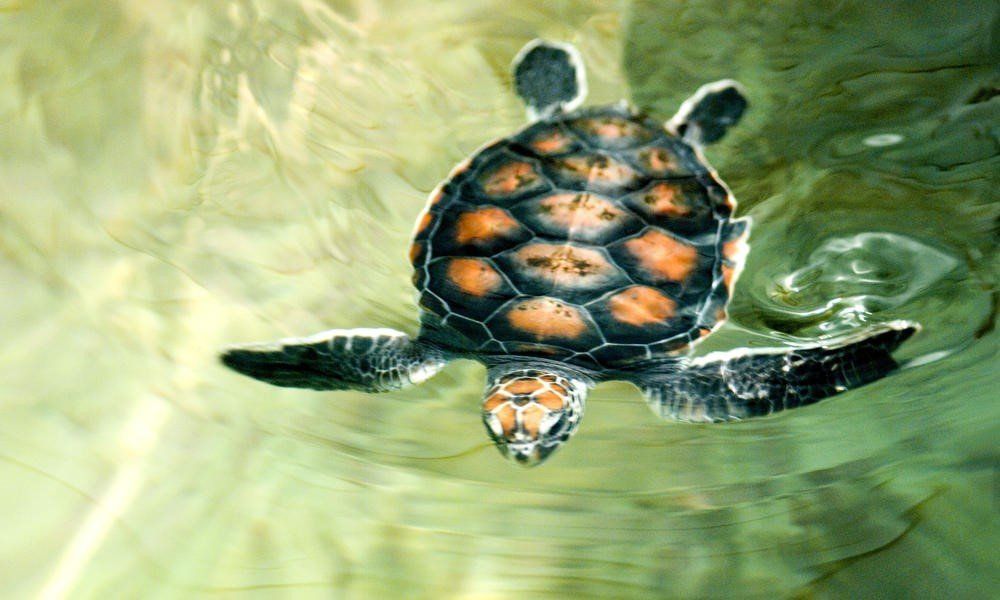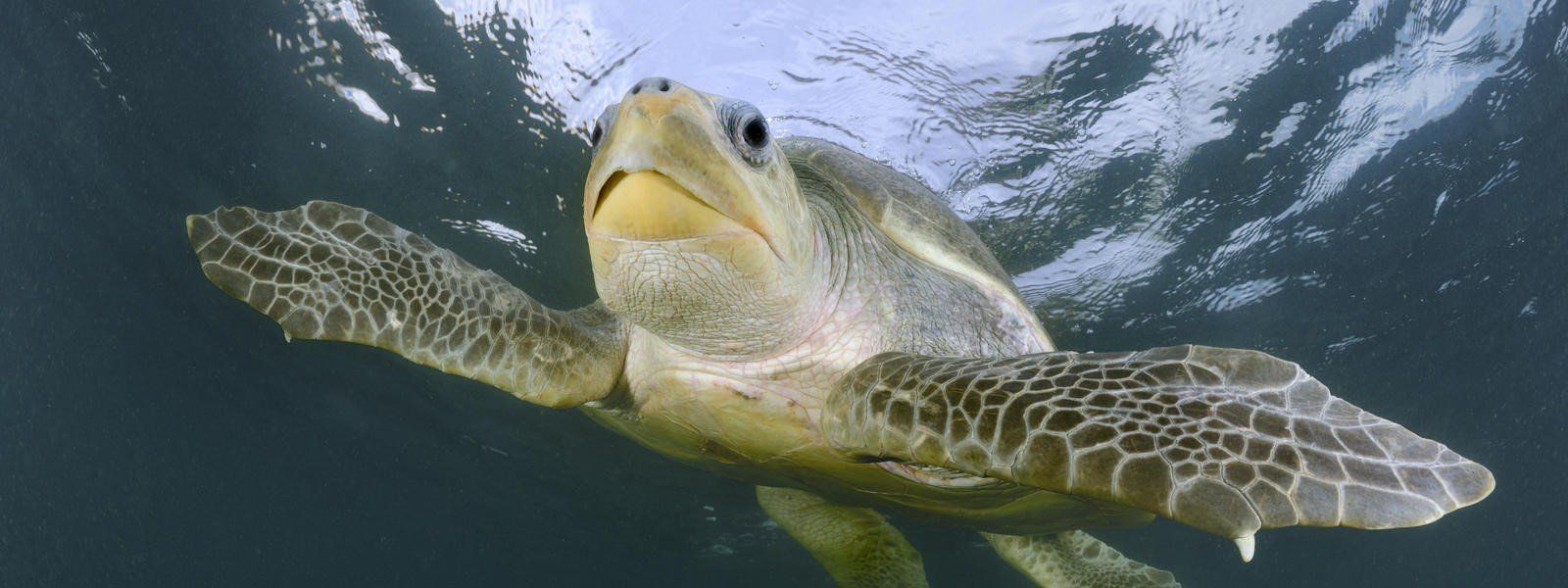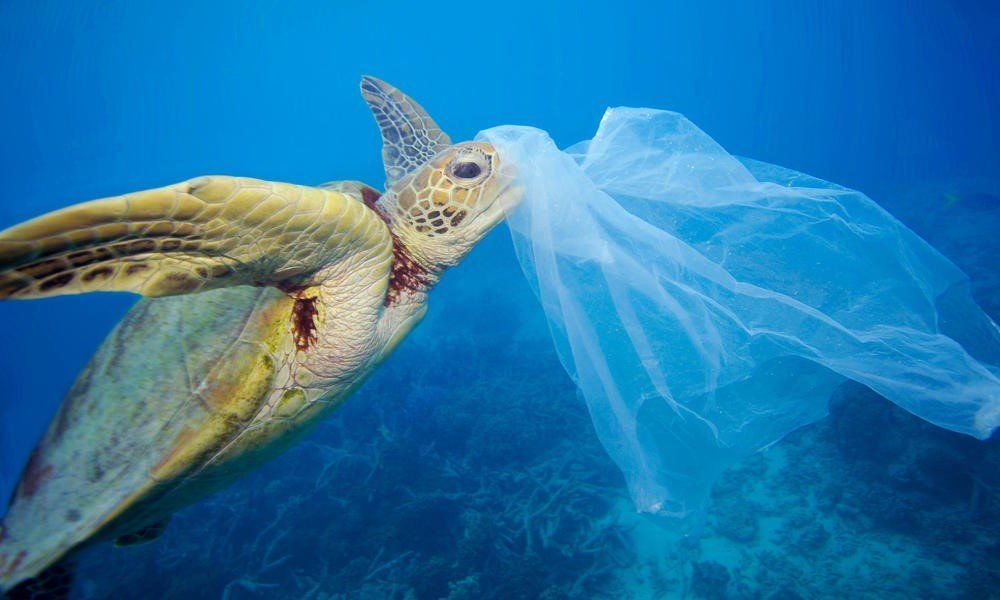World Sea Turtle Day - The Different Species.
World Sea Turtle day is celebrated every year on the 16th of June, on the Birthday of Archie F. Carr. a famous Sea Turtle researcher and conservationist. Sea turtles are part of the reptile family. Like all reptiles they are cold blooded and rely on their environment to control their body temperature. For this reason, they are often found in tropical, sub-tropical and warm temperate waters (with an exception to the leatherback).
In total, there are seven species of sea turtle. The Green Sea Turtle, the Loggerhead Sea Turtle, the Hawksbill Sea Turtle, the Flatback Sea Turtle, the Olive Ridley Sea Turtle, the Kemp’s Ridley Sea Turtle, and the Leatherback Sea Turtle. They vary in size, shape, and colour across the species with the smallest being the Olive Ridley and the largest the Leatherback.
Their extensive adaptations to life at sea include excellent underwater vision, a good sense of smell, streamlined bodies and larger flippers. These adaptations aid their long distance travels across oceans to nest and feed.
Leatherback Sea Turtle ( Dermochelys coriacea)
The leatherback is the only species of sea turtle that occurs regularly in Irish waters. They are an exceptional example of a reptile as they can maintain their body temperature to as much as 18 degrees above that of their surrounding waters. This allows them to be the most widely distributed of the sea turtles. They are also unique in the fact that they have a rubbery carapace and their relatives have a hard carapace. Under their skin they also have a thick oily layer that allows them to maintain their body temperatures while searching through cold waters for their favourite food, jellyfish. They are a major part of the food chain as they consume jellyfish that would otherwise deplete fish stocks that are also a food source for many other marine mammals.
Sea turtles migrate long distances across oceans. The record is currently held by a female Leatherback who swam almost 13000 miles in 647 days from Indonesia to America. Many sea turtles have been tagged across the world to gather information such as this for a better understanding of their lifestyles. One of the most important tagging events in Ireland was the tagging of two Leatherbacks. For years, the North Atlantic had been considered a stronghold for the species outside of their nesting periods. But it was not until they were first tagged in 2005 and again in 2006 that this theory could be put to the test. These tagging events allowed for the documentation of the movement of leatherbacks throughout the largest feeding grounds in the North Atlantic. It is clear that this area plays an important role in the feeding ecology of these Leatherbacks and possibly many others.Green Sea Turtle (Celonia mydas)
The Green Sea Turtle are herbivores, which is not seen in any other species. They are found throughout the tropics and subtropics. Although recorded in Britain they have never been found in Irish waters
Loggerhead Sea Turtle, ( Caretta caretta)
The Loggerhead is found in Florida and the Mediterranean. However, they have been recorded in Irish waters more than 30 times in the past 60 years. The most recent being a baby loggerhead washed up in Galway after storm Lorenzo in 2019.
Hawksbill Sea Turtle, (Eretmochelys imbricata)
Found along the Great Barrier Reef, Indonesia, Indian Ocean and the Caribbean, the Hawksbill helps the preservation of coral reefs by eating its competitor, sea sponges. It is rarely seen in Europe but was once captured off Cork Harbour in 1983.
Flatback Sea Turtle, (Natator depressus )
The Flatback is different from the other turtle species in the sense it does not venture out into the open ocean and stays close to home which is the northern coast of Australia.
Olive Ridley Sea Turtle, (Lepidochelys olivacea )
The Olive Ridley is found in tropical and subtropical waters and has never been recorded in Ireland.
Kemp’s Ridley Sea Turtle and . ( Lepidochelys kempii )
The Kemp’s Ridley is found in the Gulf of Mexico. However, juveniles can be found between tropical and temperate oceans with a few stranding’s reported in Irish waters. The most recent being in 2015 in Donegal. They are the rarest and most endangered of all the seven species of sea turtles.
How you can help?
In recent years, Sea turtle populations have significantly reduced due to human activities. They face many challenges to survive in todays world, such as pollution, climate change, habitat loss and being bycatch in fisheries. No matter how big the challenges these sea turtles face, you can also do your bit to help them.
- Reduce the use of single-use plastic in your household. The polluted waters they live in along with swallowing plastic that they think is food is a major concern
- Invest time into researching your food habits. Where are you getting your fish supply from?
- If you see a sea turtle, report it. You can do this on the O.R.C Ireland Observers App. This will help us get a better idea of what is going on in our waters. And also help us save the species that would not survive here, like the loggerhead.
References
Doyle, T.K., Houghton, J.D.R., O’ Súilleabhain, P.F., Hobson, V.J., Marnell, F., Davenport, J., Hays, G.C. 2008. Leatherback turtles satellite-tagged in European waters. Endangered species research , 4 , 23-31
Notice nature. 2005. Available at http://www.noticenature.ie/files/enfo/factsheet/en/WL38%20Sea%20Turtles.pdf
Sea Turtle Conservancy. Available at https://conserveturtles.org/information-about-sea-turtles-an-introduction/
WWF. 2020. Marine Turtles: Earth’s Ancient Mariners. Available at https://www.wwf.org.uk/learn/wildlife/marine-turtles
SHARE THIS ARTICLE






